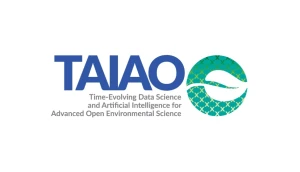Time-Evolving Data Science / Artificial Intelligence for Advanced Open Environmental Science (TAIAO)
 Led by the University of Waikato, TAIAO is a data science programme of $13 million (GST exclusive) over seven years, funded by the Ministry of Business, Innovation, and Employment (MBIE). It will advance the state-of-the-art in environmental data science by developing new machine learning methods for time series and data streams that are able to deal with large quantities of big data in real-time, which are tailored to deal with data collected on the New Zealand environment.
Led by the University of Waikato, TAIAO is a data science programme of $13 million (GST exclusive) over seven years, funded by the Ministry of Business, Innovation, and Employment (MBIE). It will advance the state-of-the-art in environmental data science by developing new machine learning methods for time series and data streams that are able to deal with large quantities of big data in real-time, which are tailored to deal with data collected on the New Zealand environment.
It will build a new open-source framework to implement machine learning on time series data, provide an open available repository with datasets to improve reproducibility in environmental data science, and build capability in fundamental and applied data science, accessible to all New Zealanders.
This programme is a new collaboration between the Universities of Waikato, Auckland and Canterbury, Beca and MetService and includes world-leading data scientists, data engineers, and environmental scientists.
User friendly deep learning
The world, and particularly New Zealand, is experiencing a shortage of deep learning specialists, and it is unlikely that this will change soon: recent developments have shown that our modern, data-rich world consistently provides new opportunities for machine learning to increase productivity and yield better decision-making. The goal of this project is to enable domain experts to apply deep learning without involving a machine learning expert and without requiring any programming, while minimising the amount of data labeling required.
AI Human Centric Security
The AI for Human-Centric Security is a Catalyst project funded by MBIE. The project is being led by Dr. Vimal Kumar, with teams from the University of Auckland and the University of Otago in NZ and Monash University, the University of Queensland, and Data61 in Australia. The project aims to use AI to aid human security experts in managing configuration in a diverse environment.
Entrepreneurial Universities - Real time analytics for Big Data
For most SMEs in New Zealand, the deployment of artificial intelligence solutions is hindered by two obstacles. First, one still needs access to significant processing power to build the networks. Second, the networks do not always converge on a good solution so significant expertise is needed to make them work. There is no question that New Zealand could take commercial and social advantage of this technology.
This research programme focuses on addressing two key questions -
- How can we make deployable machine learning technology available to the wider business and government communities in New Zealand so that they may benefit from the age of Big Data?
- Can we develop data streaming methods that scale to Big Data like large deep neural networks, but work well in all domains?
